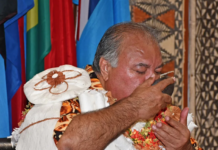Source: The Conversation (Au and NZ) – By Maximilian de Courten, Health Policy Lead and Professor in Global Public Health at the Mitchell Institute, Victoria University
This week, we heard how conditions at a Sydney quarantine hotel were so bad almost 400 returned travellers had to be moved to another one.
Before that, we heard from Victoria’s inquiry into hotel quarantine. We learned the bulk of cases during the state’s second wave could be tracked down to a family of four returned travellers staying at a single quarantine hotel.
But Australia isn’t the only country to have quarantine issues. Some countries don’t use hotel quarantine at all. And others have turned to technology to keep track of returned travellers.
So what can we learn from other countries’ successes and failures?
A short trip around the world
CyprusThe Mediterranean island of Cyprus also uses hotel quarantine for international arrivals. But rather than “hotel quarantine hell”, hotels in Cyprus are said to have a “holiday vibe”, despite not being able to leave your room.
Travellers praised Cyprus for its luxury and positive hotel quarantine experience. Some have even said they would return for a (real) holiday.
Cyprus recorded a peak in daily cases of only 58, in early April, and now has an average of new cases a day in the teens.
Canada
Returned travellers must give Canadian authorities a plan for how they intend to spend their mandatory 14-day quarantine. This doesn’t have to be in a hotel; it can be at home. You have to monitor your own symptoms, and police will check up on you.
However, violations can result in large fines of up to C$750,000 (A$788,000) or six months in jail.
Taiwan
Taiwan introduced 14-day hotel quarantine for returned travellers who didn’t have a single room with a separate bathroom or who lived with vulnerable people.
Since late June, business travellers from low-risk countries can visit Taiwan and spend only five days in quarantine. But they need to take a COVID-19 test before leaving quarantine.
Taiwan has 18 active COVID-19 cases.
Singapore
After flattening the curve, Singapore decided to relax its 14-day hotel quarantine to seven days self-quarantine for travellers arriving from specific countries.
But all travellers over the age of 12 not staying in a quarantine facility have to wear an electronic tracking wristband. Authorities are alerted if people go outside or tamper with the device.
Hong Kong and South Korea have also introduced wristbands to track people’s movements upon arrival and to check people comply with quarantine regulations.
Poland
Travellers arriving in Poland have to install a home quarantine phone app developed by the Polish government.
For 14 days, the app uses facial recognition and geolocation algorithms to monitor people. It also prompts people to take selfies at random times during the day.
Individuals have 20 minutes to respond to these prompts, otherwise they risk police knocking on their door.
UK
A major “quarantine failure” was the UK’s experience at the start of the pandemic, when 10,000 travellers spread the virus across the country.
Members of parliament accused the responsible ministers of making errors, such as having no border checks, no specific quarantine arrangements, and lifting self-isolation regulations.
This eventually led to the UK dealing with a total of 328,846 cases and 41,465 COVID-19-related deaths.
The UK has since tightened its quarantine arrangements.
These ideas are worth adopting in Australia…
More than 70,000 returned travellers have been quarantined in Australian hotels since it became mandatory in late March. We don’t know exactly how many of these people have gone on to test positive. But about one in five of Australia’s cases were acquired overseas.
Read more: Is aggressive hotel isolation worth the cost to fight COVID-19? The answer depends on family size
As the headlines show, we can clearly do better in how we manage our quarantine system.
Adopting a “Cyprus-style” model of luxury hotel quarantine is simply beyond reach in Australia given the sheer number of people requiring quarantine facilities. However, improving the quality of facilities, ensuring a safe environment, and supervising staff is vital. This includes training both staff and travellers on infection control measures.
People in quarantine also need access to health care as well as to financial, social and psychosocial support, to ensure their safety and mental health.
…but we need to be careful about electronic tags
We would be particularly concerned about the human rights implications of returned travellers having to wear electronic monitoring devices.
Although we might be familiar with electronic monitoring devices in the criminal justice system, when used in the context of infection they could stigmatise people for simply being at higher risk of disease.
Read more: Lockdown returns: how far can coronavirus measures go before they infringe on human rights?
They go against the presumption that all persons will be law-abiding and perform their civic duty, with no evidence to the contrary.
There are also potential privacy concerns. There is no guarantee data collected through electronic monitoring — especially when using smartphone apps — will not be used for purposes other than monitoring pandemics.
No system is perfect
Even if we implement a world best quarantine system for returned travellers, SARS-CoV-2, the virus that causes COVID-19, can still slip in.
That’s because people can still be infectious before feeling sick, before being diagnosed, or before being directed to quarantine. This becomes more likely the more people are kept under quarantine.
– ref. Another day, another hotel quarantine fail. So what can Australia learn from other countries? – https://theconversation.com/another-day-another-hotel-quarantine-fail-so-what-can-australia-learn-from-other-countries-144804







